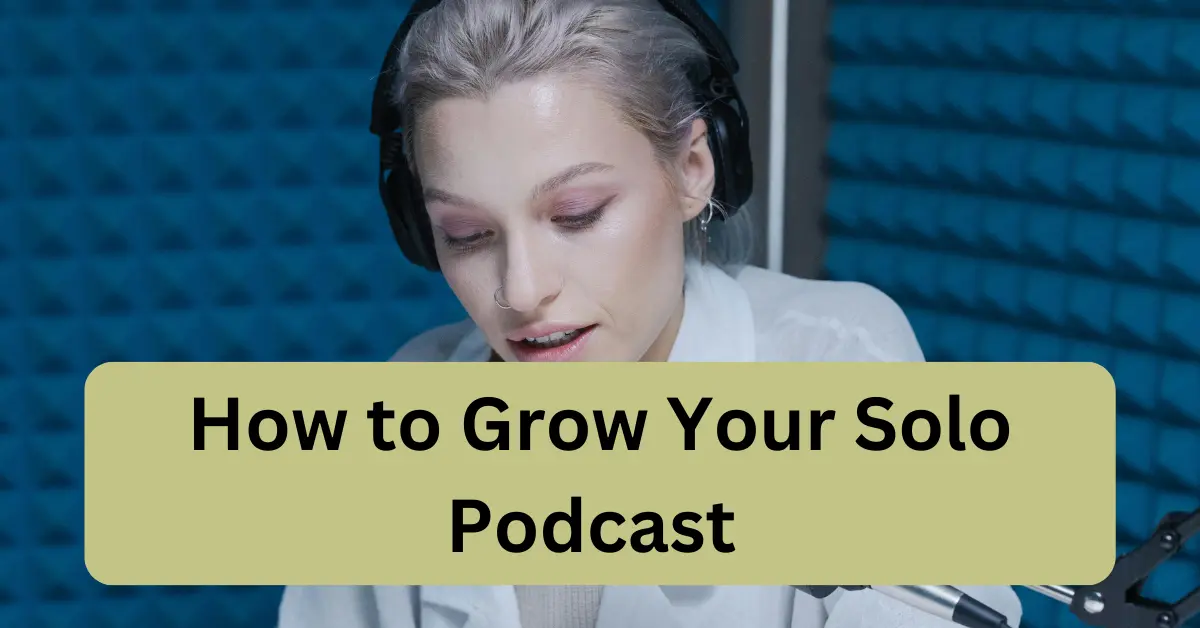How to Host a Panel-Style Podcast: Tips & Discussions
Published: 12 Nov 2024
Hosting a panel-style podcast is a powerful way to engage audiences with diverse perspectives and dynamic discussions. Whether you’re exploring trending topics or offering expert insights, a panel podcast adds variety and depth to your content.
Here’s a comprehensive guide on hosting a successful panel-style podcast, from planning to promotion .How to Host a Panel-Style Podcast

1 Introduction to Panel-Style Podcasts
Panel-style podcasts bring multiple voices to the table, creating a conversational and lively experience for listeners. Unlike solo or interview formats, panels are ideal for discussions that benefit from different viewpoints and expert input. They work well for topics such as industry trends, debates, and topic breakdowns, keeping listeners engaged through varying opinions and insightstips-for-becoming-a-successful-podcast-host
2 Planning Your Panel Podcast
The success of your panel podcast often starts in the planning phase. A well-organized panel will be balanced, relevant, and prepared to contribute to the discussion. Here are a few key steps:
Choosing Your Topic:
- Select a topic that resonates with your audience and aligns with your podcast’s theme. Focus on subjects that spark discussion, such as current trends, challenges in your niche, or complex issues that require varied opinions.
Selecting Panelists:
- Pick panelists who bring unique perspectives. Aim for a mix of expertise levels and backgrounds to ensure diverse insights. For example, if you’re hosting a tech podcast, include a tech journalist, an industry expert, and a developer. Ensure your panelists have engaging speaking styles and are comfortable with conversational formats.
Scheduling and Coordination:
- Use tools like Google Calendar or Doodle to coordinate availability. Once everyone confirms, send a calendar invite with details on timing, topic focus, and any preparation guidelines.
3 Preparing for the Episode

- Preparation is key to ensuring that your panel runs smoothly. Here’s how to prep effectively:
Researching the Topic:
Prepare by thoroughly researching the topic. Understand key talking points, recent developments, and relevant statistics to frame the discussion and keep it informed. How to Host a Panel-Style Podcast This preparation helps you step in with insightful questions if the conversation lulls or needs direction.
Creating an Outline and Questions:
Draft a flexible outline of the episode’s structure. Include introductory segments, main discussion topics, and closing questions. Develop open-ended questions that encourage panelists to share personal insights. For example, instead of “Is AI beneficial?” try “How do you see AI impacting your industry over the next five years?”
Setting Objectives for the Discussion:
Determine the primary goal for the episode. Are you trying to educate, entertain, or inform? Clearly defined objectives will guide the conversation and help you keep the panelists focused.
4 Technical Setup and Recording
A seamless technical setup is essential for high-quality audio, especially when coordinating multiple guests. Here’s what to consider:
key technical setup definitions
Equipment Needs:
Invest in quality microphones and headphones for a clear audio experience. For remote panelists, encourage them to use USB microphones and headsets to minimize background noise. Popular microphones include the Audio-Technica ATR2100x and Blue Yeti.
Recording Platform:
- Choose a reliable recording platform like Zoom, Riverside.fm, or Zen caster. These tools offer high-quality recording and some even provide separate audio tracks for each participant, making editing easier.
Testing and Setup: Conduct a tech check before the recording day. Ensure everyone has a stable internet connection and that their equipment works correctly. How to Host a Panel-Style Podcast Remind panelists to be in a quiet environment with minimal distractions during recording.
5 Moderating the Discussion

Effective moderation keeps the conversation flowing and ensures that each panelist gets a chance to contribute. Here are moderation tips to create a balanced and engaging discussion:
Establish Ground Rules:
Start by setting expectations. Ask panelists to avoid talking over each other and suggest waiting for others to finish before responding. Ground rules make the discussion smoother and more respectful.
Encourage Balanced Participation:
Some panelists may naturally speak more than others. Gently guide quieter participants into the conversation by addressing them directly. How to Host a Panel-Style Podcast For instance, you could say, “That’s a great point, Sarah. Alex, what are your thoughts on this?”
Keep the Discussion Focused:
If a panelist drifts off-topic, gently steer them back with a question related to the main theme. A focused moderator ensures the podcast remains engaging and on-point for listeners.
6 Engaging Your Audience

Audience engagement is a critical factor in podcast success. Here’s how to create a two-way interaction with your listeners:
Encourage Listener Questions:
If you’re hosting a live panel, invite listeners to submit questions via social media or a Q&A feature in your recording platform. Announce the questions at the start or end of the episode for a personal touch.
Interactive Live Sessions:
For real-time engagement, consider hosting the panel on a live platform like YouTube Live or Facebook Live. How to Host a Panel-Style Podcast Live sessions allow for immediate feedback and create a community atmosphere as listeners can comment and react to the conversation.
Social Media Promotion:
After publishing the episode, promote it on social media. Share quotes or sound bites from the panelists to spark interest and attract more listeners.
7 Post-Production and Publishing
- Editing a panel-style podcast requires attention to detail to ensure clarity and flow. Here’s a breakdown of the post-production process:
Editing for Flow:
- Remove any long pauses, interruptions, or tangents that detract from the main discussion. Clean up audio inconsistencies to ensure that each panelist’s voice is clear and even.
Adding Transitions and Music:
- Include an introduction and closing segment with music or sound effects to give your podcast a polished feel. Smooth transitions between segments or topics enhance the listening experience.
Publishing with SEO in Mind:
Optimize your episode title and description with relevant keywords, such as “How to Host a Panel Podcast” or “Podcast Panel Discussion Tips.” A detailed description with time stamps can help listeners jump to specific parts of the episode.
8 Promoting Your Panel Podcast

- Promotion is essential to reach a wider audience and make your panel podcast successful. Here are some effective promotion strategies:
SEO Optimization:
- Use relevant keywords in your podcast title, description, and tags. SEO optimization improves discoverability and can bring in more organic traffic.
Cross-Promotion with Panelists:
- Ask your panelists to share the episode on their social media channels. When panelists promote the podcast, it reaches their followers, expanding your audience.
Engage with the Audience Post-Release:
- After publishing, engage with listeners in the comments and on social media. Responding to feedback or sharing listener comments can build loyalty and keep them coming back for future episodes. How to Host a Panel-Style Podcast
9 Analyzing and Improving
- Continual improvement is vital to long-term podcast success. Track performance metrics and gather listener feedback to refine your panel podcast over time.
Listener Feedback:
- Encourage listeners to leave reviews or share their thoughts on your podcast platform. Constructive feedback can highlight areas for improvement and help you create more engaging content.
Monitor Analytics:
- Use analytics tools to understand listener demographics, retention rates, and popular segments. This data can guide future episode topics and panel formats.
Implement Changes:
- Based on the feedback and analytics, make adjustments to your podcast style, format, or technical setup. Regular updates show your audience that you value their input and are committed to delivering high-quality content.
Conclusion
Hosting a panel-style podcast involves careful planning, technical setup, and engaging moderation. With the right preparation, How to Host a Panel-Style Podcast you can create a dynamic and informative experience for your listeners. Follow these steps, keep refining your approach, and soon you’ll be hosting panel discussions that keep audiences coming back for more. Panel-style podcasts are a fantastic way to explore diverse perspectives and bring unique value to your listeners, helping you stand out in the world of podcasting
What equipment do I need to host a panel-style podcast?
For a quality panel podcast, you’ll need reliable microphones, headphones, and a recording platform like Zoom or Riverside.fm. Each panelist should have a USB microphone for clear audio, and recording on separate tracks is recommended for easier editing.
How do I choose panelists for my podcast?
Select panelists who bring diverse perspectives and are knowledgeable about the topic. Aim for a mix of backgrounds or expertise levels, and ensure they’re comfortable with conversational discussions to keep the panel engaging.
How can I keep a panel discussion focused?
Prepare a flexible outline and act as a moderator to guide the conversation. Set clear goals for the episode, establish ground rules, and gently steer panelists back if they go off-topic to maintain a focused and engaging discussion.
Proudly powered by WordPress

- Be Respectful
- Stay Relevant
- Stay Positive
- True Feedback
- Encourage Discussion
- Avoid Spamming
- No Fake News
- Don't Copy-Paste
- No Personal Attacks

- Be Respectful
- Stay Relevant
- Stay Positive
- True Feedback
- Encourage Discussion
- Avoid Spamming
- No Fake News
- Don't Copy-Paste
- No Personal Attacks






